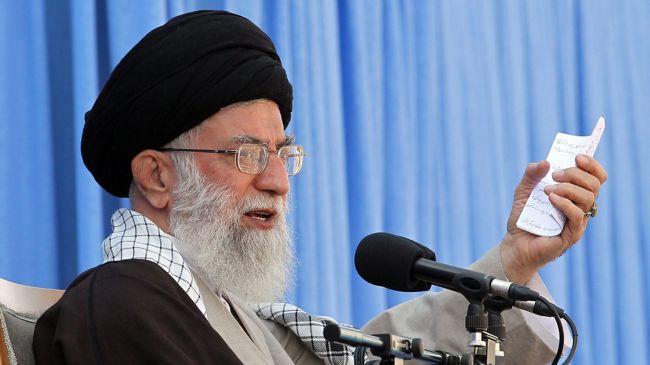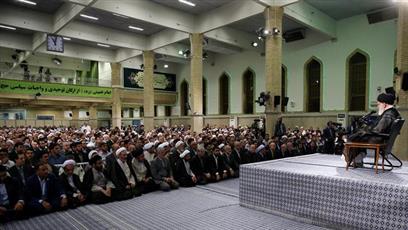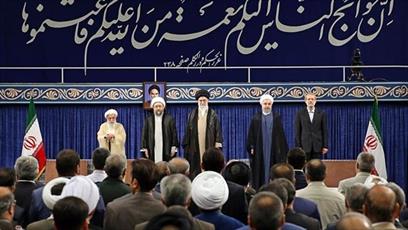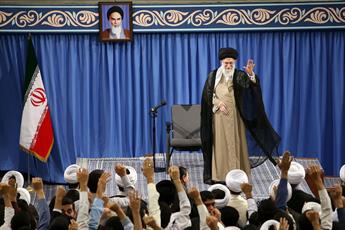Hawzah News Agency (Tehran, Iran) – Here are some excerpts from Ayatollah Khamenei's remarks on how to resist enemies:
What can stabilize the Revolution, the great orientation of this nation, and the way in which we strive towards salvation, glory, divine satisfaction and prosperity--in this world and the Hereafter--is vigilance, readiness, and the spirit of guardianship.
This spirit of guardianship depends upon one's spirituality. That is why, when I pay visits to our guardsmen, the revolutionary communities, and brothers and sisters who play sensitive roles in different parts of the country, I insist on increasing spirituality. This attention, appeal, and this heartfelt relation with the Lord of the universe, guarantees the strength and authority of forces who always desire to stand against and resist opposition; there is no other way to achieve this.
If a relationship with God is weakened, worldly desires dominate man and such cravings can drive him, then resistance against the enemy will be weakened. Of course, every human is, at times, exposed to his/her own worldly desires; this is not something that can be eradicated from humankind. What's important is to prevent these emotional desires, the material interests and minor needs of humankind, from determining one's lifeline; desires should not be valued to the point that they determine the path one takes in life.
What reduces vulnerability in this area are the spiritual and ethical aspects: prayer, attention, self-determination, the refinement of one’s desires and the fight against corrupt morality in oneself. This is extremely important. There exist many people who are concerned with these things, in terms of attention and prayer; but, they cannot eradicate corrupt thoughts--selfishness, greed, jealousy, malevolence, pessimism, malice towards others--or prevent the impact of their behavior.
The exact opposite is the moral paradise that Islam has illustrated for humankind. Islam has called for humans to be sympathetic towards each other; to be highly affectionate towards one another’s destiny; to be interested in the benefits of each other; to feel sorrow towards another's mistakes and sufferings; to pray for each other; to treat one another with mercy and “advise one another to compassion." (Quran 90:17) Friendships, emotional bonds, loving relationships--between brothers, friends, sisters, among the people of the Islamic nation--, benevolence and compassion are distinguished attributes, which should be strengthened. The worst traits in humans are revealed when they center on their own material interests, and are willing to expose many fellow humans to misery and demise, in order to satisfy their own personal sentiment and will; this [poor behavior] needs to be healed and eradicated from our hearts by God. Such meaningful thought is present in prayer. It is impressive to note that from all the Imams (as)--as far as I remember--prayers have been documented and delivered to us. The most famous and numerous are from three Imams (pbut), all of whom were involved in major battles of their time: Imam Ali (as), who brought us dua Kumail, among others, which is unique in its enthusiasm; Imam Hussain (as), the most important of his duas being the Arafah Prayer--a truly impressive prayer; and Imam Sajjad (as), the son and messenger of Ashura, and the opponent of Yazid’s major oppression. The three Imams, who experienced the most battles, have delivered the highest amount of duas. Their teachings underlining the importance of prayer appear most often; moreover, you see these ethical traits in the prayer book of Sahifeh-Sajjadieh.
December 04, 1997






Your Comment